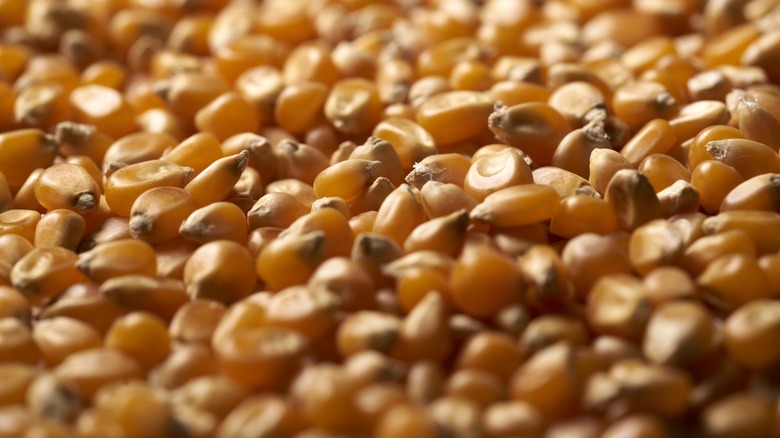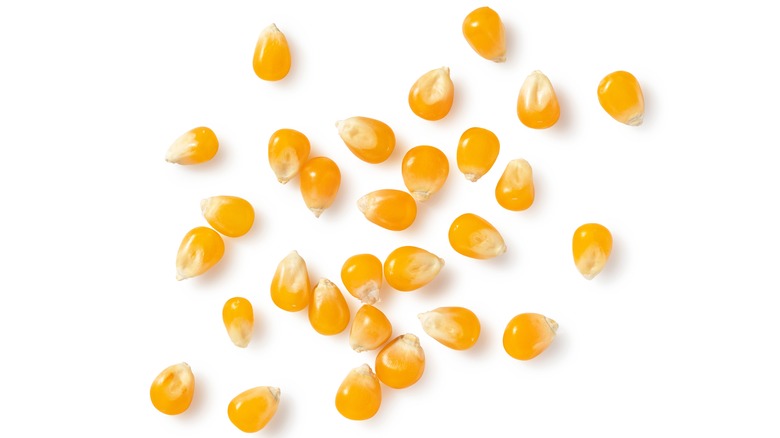What Happens If You Try To Pop Expired Popcorn Kernels?
Expiration dates are essentially meaningless numbers, followed or preceded by unclear, short phrases like "sell by", "best by" or "best if used by'" (via The Atlantic). There is no federal regulation over the expiration date labels. As a result, food that could be interpreted as "expired" is actually still just fine and fit for consumption — so you can stop throwing out your expired foods. That being said, not every expired food eaten has the same outcome, since consuming expired raw meat and a can of soup from a few years ago is not the same ball game. And some foods (like honey) can last indefinitely when stored properly, which means your great-great-great-great grandchildren can comfortably eat from your jar of honey that's been sitting in the back of your pantry.
Other expired foods need more caution, like popcorn kernels. If you happen to find an old bag of popcorn in the back of your kitchen cupboard, here's what to look out for.
Old popcorn kernels can dry out
According to Kettle Heroes, popcorn kernels can maintain their moisture for up to a year. After this point, they can turn really dry or even develop mold. If you're unsure if popcorn has gone bad, smell it for any off-putting odors. Look out for white spots on kernels, black kernels, or an unusual texture, per The Brilliant Kitchen.
A good rule of thumb is that up to two months past the expiration date, bagged and already popped popcorn is usually fine to eat. Past two months, the popcorn will most likely just be dry or stale. If you're working with expired microwave popcorn, you can heat up the bag (just make sure to place the bag right side up for maximum efficiency). But just be forewarned that the resulting popcorn may be burnt or stale, due to the loss of moisture from sitting around for too long.

